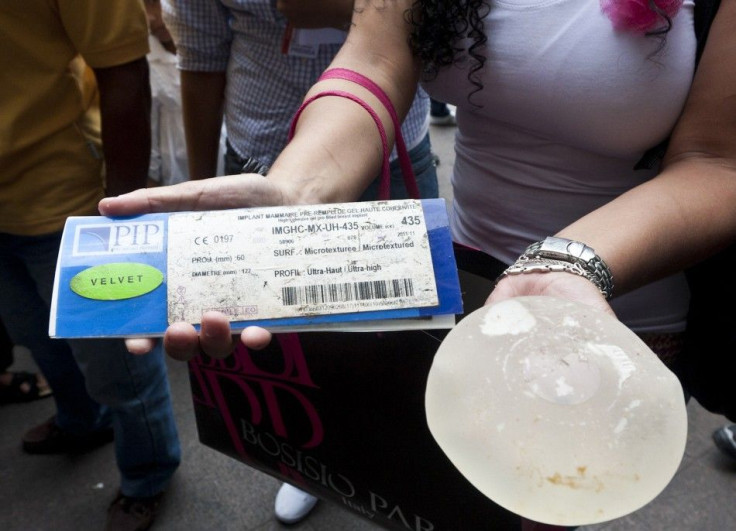Brazil Tightens Quality Controls On Breast Implants After Sale Of Defective French Implants

(REUTERS) - Brazil will introduce tightened controls on sales of breast implants including lot-by-lot testing, the government said on Thursday, after thousands of defective French implants were sold in the country and across Latin America.
Health regulator Anvisa will require implants to be certified through the national quality control institute Inmetro to ensure products meet new criteria including physical strength, tear resistance and absence of toxic substances.
Previously, no specific standards existed for breast implants in Brazil beyond the proforma criteria that exists for health products in general, an Anvisa spokesman told Reuters.
Around 25,000 implants produced by now-defunct and bankrupt French company Poly Implant Prothese (PIP) were sold in Brazil and 300,000 worldwide. They were taken off the market in Brazil in December after it was discovered they were made with cheap industrial silicone, making them prone to rupturing and leaking.
The founder of the company, Jean-Claude Mas, is now in jail and facing both civil suits and criminal charges of bodily harm in France. Hundreds of women in France, Venezuela and elsewhere are preparing to sue surgeons and importers of the implants.
Brazilian lawyer Anderson Macohin said he intends to sue Anvisa on behalf of 34 PIP wearers for failing to prevent the products reaching the market. Anvisa argues PIP stopped using approved clinical silicone after it inspected the factory.
Manufacturers will be able to choose between certification through on-going pre-market tests on batches of their products, or on-site inspections of production processes that will come on top of existing factory inspections by Anvisa.
The more stringent rules will apply to any new implant product seeking to launch in Brazil. Existing brands will also be subject to the new tightened checks once their five-year licenses come due for renewal, the Anvisa spokesman said.
(Editing by Anthony Boadle)
© Copyright Thomson Reuters 2024. All rights reserved.






















